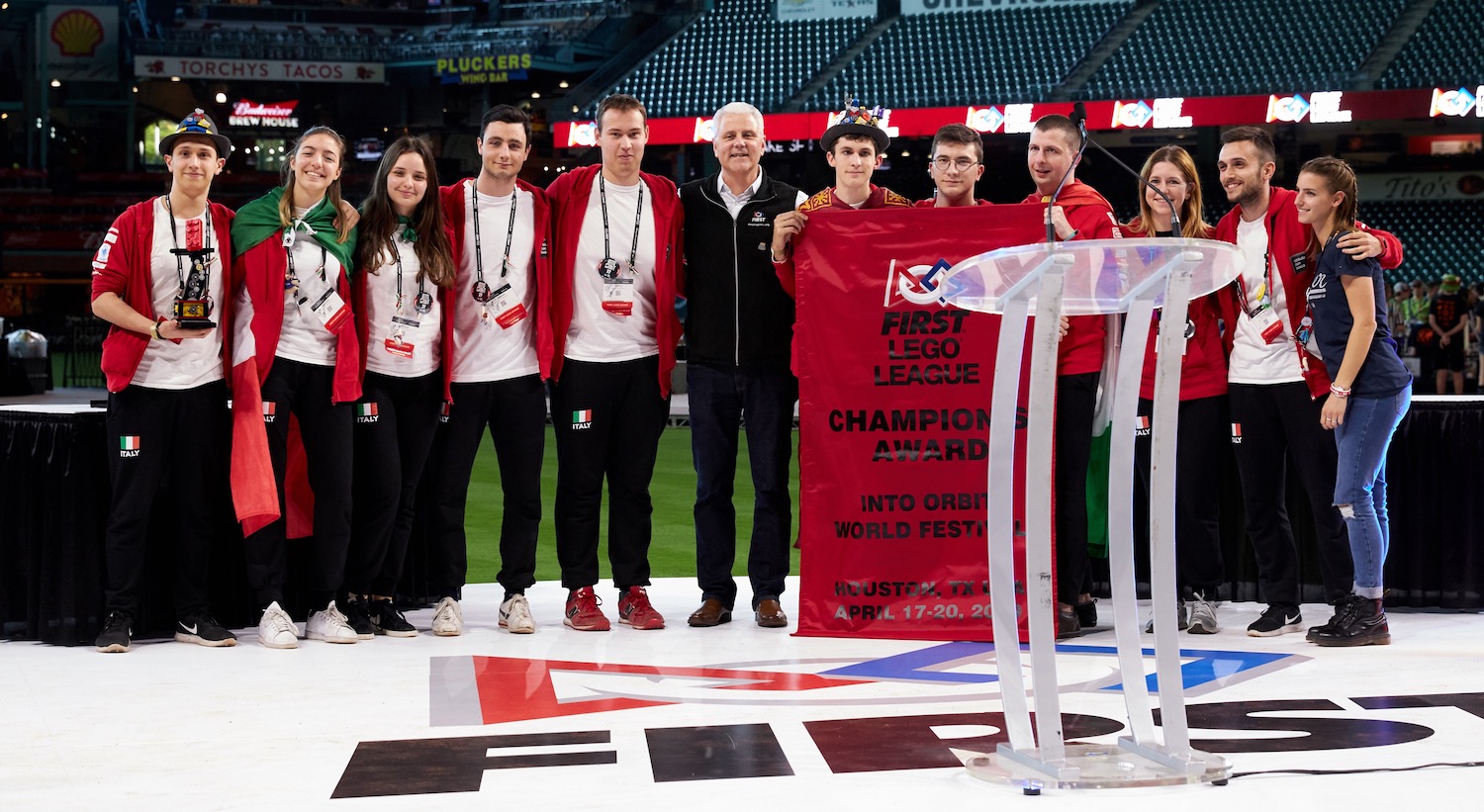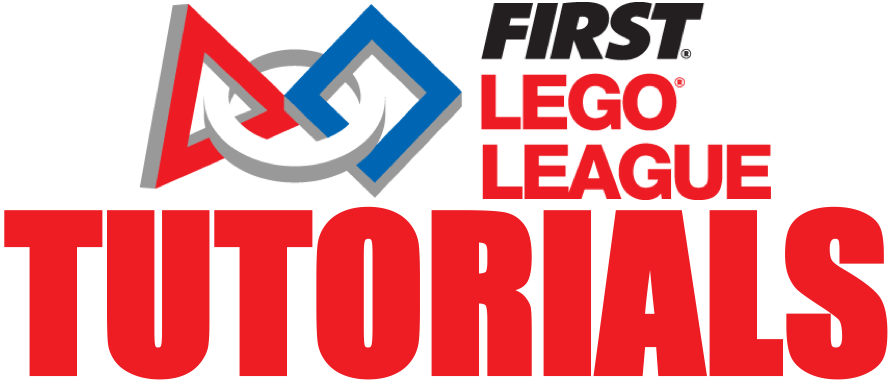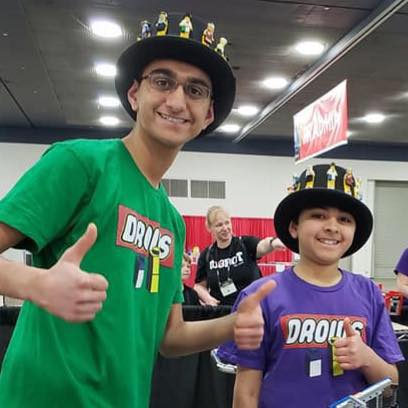iDB Tech-No-Logic

Meet iDB Tech-No-Logic, a FIRST LEGO League team from Verona, Italy. Their team competed in FIRST LEGO League since the Animal Allies season and participated in the World Festival in 2018 and 2019. Their team’s achievements include two Champion’s Awards at the Italian Championship and a first place Presentation Award at the World Festival in Detroit of 2018. They ended our FIRST LEGO League journey in 2019 by winning the Champion’s Award at the World Festival in Houston.
How did you come together as a team?
We all go to the same high school and most of us were already really good friends before participating. Then the school offered the opportunity to form a FIRST LEGO League team and we were all extremely excited to join. As the years went by we all got to bond and now we are all best friends.
If you are a retired team, what did you do after FIRST LEGO League?
Our team retired after the World Festival in 2019. Right now we are working on improving our project for the Global Innovation Award that will be next month. After that, we’ll probably keep working on implementing it and help with the training of the second team of younger kids at our school. We are also hosting lots of events and activities in which we explain our awesome experience and spread knowledge to teachers and mentors. Next year we will be going to volunteer at the events in Italy and also in foreign countries together with a judge we met at worlds.
What is one unique thing about your team?
We all had very different skills and through the years we learned to make the most of this by assigning different jobs to each one of us. This helped us in finding the right balance between collaborating and being as effective as possible.
Which FIRST LEGO League season was your favorite, and why?
We think that our last year was the best. We definitely had the most fun and really enjoyed our last time working together as an FLL team.
What is something unique or memorable about your robot or a tip you want to share?
A successful robot isn’t one that relies only on advanced algorithms to complete missions. It’s one that is built taking into consideration the errors that could happen. First, build the robot and test by hand your ideas and mechanisms taking in mind some margin of error. Program it with measures to make more adjustments as possible: use lines, colors, walls and models to square up and when testing try to make it fail. Take notes on what doesn’t work and tweak first the hardware, then the software. Remember, it’s not that few degrees you tweaked the night before that will make your robot work. One of the most common mistakes teams make is focusing on the number of points they can achieve in a perfect run while overshadowing reliability and effectiveness. Don’t be afraid to discard a solution and start over. Some times is the best thing to do. A unique thing we’ve developed on our robot are handles and buttons extensions. Reaching the EV3’s buttons may be difficult, so extensions help a lot. To optimize time spent in base the attachments have built-in handles that allow us to remove them super easily. You can see it here.
One of the most common mistakes teams make is focusing on the number of points they can achieve in a perfect run while overshadowing reliability and effectiveness
Share some tips about the doing the research project
The most important thing is to find a problem that hasn’t been solved yet in virtually any way. Don’t be afraid to dedicate at least 30% of the research to that. It will assure you success when you find a solution since it will for sure be innovative. When selecting the idea to develop don’t avoid ridiculous ones: most of the times they hide great project seeds. This year we actually tackled more than 20 problems and spent two full months developing and discarding some of them.
Share some tips about Core Values
A team can’t be its best if the members don’t love being on it and spend the whole day looking forward going to the robotics lab to be together. That’s what makes our team so great. We meet 3 or 4 days a week from 3 to 7pm, and if necessary come to school on weekends and during holidays, make video calls till late at night and sleepover at school the days before a competition happens. Take team trips, go eat together, plan group sleepovers and celebrate birthdays with your teammates… the rest will come by itself.
What is something you wish you knew when you started out in FIRST LEGO League?
A successful team is not ten people that can build a robot. It’s an artist, an actor, a programmer, a designer, a technician, a musician, a researcher and somebody able to put everything together. We had all lots of different skills and wanted to make use of them. FIRST LEGO league is not a robotics only competition and figuring out that many aspects are involved and learning how to tackle all of them is key. Studying the rubrics is also important as they give lots of hints and useful ideas on how to approach problems and therefore be successful. On our first ever competition we didn’t even read all the robot game rules… we built a very tall structure and luckily later found that there wasn’t a height limit, but if this happened this season, where the height limit was lowered to 12 inches, we would have definitely lost lots of points.
Why did you win your last year?
The reason why we won the third year we participated is that our coach let us make our mistakes the previous years. We went through some epic fails and a lot of disappointments. That’s what gave us the boost to work harder, revisit our approach and improve it.
Fail now and be the best!

 Resources
Resources


